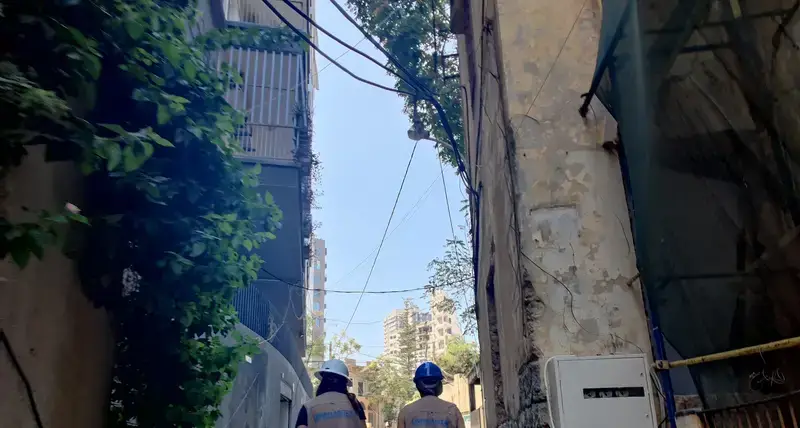The 4 August 2020 Beirut Port explosion caused widespread destruction to homes, businesses, infrastructure, and disrupted economic activity. It also struck the vibrant, cultural heart of Beirut, recognized for its social and cultural identity with a historical built environment embedding a concentration of cultural landmarks, heritage buildings, restaurants, bars and other social spaces that attracted both tourists and residents alike.
In March 2021, through funding from the Embassy of Japan in Lebanon, UN-Habitat initiated a holistic project for post-explosion recovery and reconstruction in the most vulnerable areas impacted by the explosion. The project’s key interventions include:
- Reviving the Rmeil Cluster:
- Restoring and strengthening 11 multi-story buildings of heritage-value from a Build Back Better approach through multiple innovative and forward-thinking techniques, while safeguarding housing, land and property rights of tenants.
- Developing the skills of 100+ men and women to take part in the rehabilitation works.
- Rehabilitating key public spaces affected by the explosion:
- Improving the operations, response capacity and functions of the Beirut Fire Brigade Center.
- Rehabilitating and reactivating two public spaces: William Hawi and Laziza Parks.
- Upgrading and repairing key public infrastructure in three alleyways in Maraach neighbourhood in Bourj Hammoud.
- Installing 15 handwashing stations to mitigate COVID-19 community transmission

UN-Habitat staff supervising rehabilitation work of heritage building damaged in Beirut port explosion. [UN-Habitat]